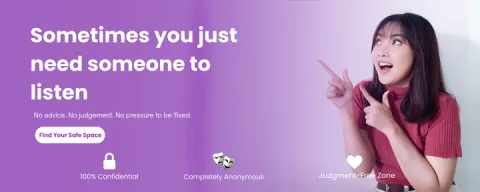Participants who received active listening responses felt more understood than participants who received either advice or simple acknowledgements, with higher conversation satisfaction and social attractiveness ratings
Research consistently shows that the quality of the therapeutic relationship is one of the strongest predictors of successful treatment outcomes, with empathy and active listening helping patients feel understood and valued
Empathetic listening is more than a communication tool—it's a healing force that helps people feel seen, safe, and understood. Learn how and why it works.
What Is Empathetic Listening?
A Real-Life Example
Why It Matters for Everyone
You Can Empathize Without Agreeing
In Therapy, It's Foundational
Looking for Someone to Truly Listen?
Regular listening might be passive or distracted. Empathetic listening is intentional, focused on understanding the speaker’s feelings, not just their words.
Not at all. Anyone can practice empathetic listening. It’s a skill that strengthens personal and professional relationships.
You don’t need perfect words. Just being present and saying, 'That sounds hard, I’m here with you,' can mean everything.





